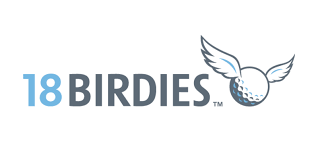Latest news from The Ernie Els Centre for Autism in SA, providing lower resourced families of children on the autism spectrum with free access to effective education for their child via e-learning programs.
1. Measuring success of the Ernie Els #GameOn Autism Golf Programme
The Ernie Els #GameOn Autism Golf Programme is comprised of 12 golf lessons, for young people (aged 8-18) on the autism spectrum. It aims to develop life skills, encourage social interaction and promote a healthy lifestyle, through golf. Each session is designed to build confidence and self-esteem, in a fun, welcoming, supportive environment, encouraging participants to learn golf skills, while practising specific autism learning concepts.
Els for Autism, South Africa is collaborating with four sites across the globe, including the UK, US, and Ireland, in our delivery of a multi-site group project that takes place from September to November 2021. This international group project seeks to measure the success of the Ernie Els #GameOn Autism Golf Programme, providing a global evidence base to support enhanced provision of Health Enhancing Physical Activity (HEPA) for young people on the autism spectrum.
To learn more about this program please visit: https://www.elsforautism.org/get-involved/resource-center-ernie-els-gameon-autism-tm-golf/.
2. Empowering parents with a new group telehealth coaching project
Over the past few years, Els for Autism South Africa has been offering parent-focused intervention. And since 2019 the team has added a shorter-term parent coaching service, using the RUBI Autism Network manual as a guide. This parent training manual was developed by Karen Bearrs and colleagues.
For over a decade, The RUBI Autism Network has developed and tested a structured parent training (PT) manual for children with ASD and disruptive behaviours. The RUBI parent manual consists of several core sessions, which include functional approaches to managing challenging behaviour, as well as having a focus on teaching appropriate alternative skills utilising evidence-based practice teaching tools. In South Africa, we have incorporated an ‘Autism 101’ power point presentation, as an introductory session, to ensure all families are equipped with the foundational knowledge regarding the autism spectrum.
Participants are expected to commit to each session and provide feedback on strategies practised at home with their child. Strategies will then be altered to better suit the style of learning for the child.
“The goal of this resource is to impart effective behavioural techniques for reducing disruptive behaviour in children with ASD and to promote acquisition of daily living skills,” commented Shani Lits, Program Director at Els For Autism South Africa.
This approach is so valuable, given that 25%-53% of children with ASD display clinically significant externalizing, disruptive, or aggressive behaviour (Edwards et al. 2019). Moreover, behaviours that are challenging can interfere with language, communication, social skills, and hinder the ability to learn adaptive behaviours required for daily living (Edwards et al. 2019). Therefore, this approach of focusing on both decreasing disruptive behaviours while simultaneously working on functional replacement skills is a powerful and effective tool for families.
Why parent training?
Parents or caregivers are the powerhouse and the agent of change! Thus, parent training allows to tap into this knowledgeable powerhouse (after all, who knows more about their child then the parent or caregiver?) by incorporating both education and training to parents to assist in better managing their child’s behaviour in a familiar and supportive environment. Parent training has been proven to reduce disruptive behaviour and set the stage for improved adaptive functioning; and can be delivered across a variety of settings.
We are thrilled to be a part of an upcoming research project, undertaken by multiple organizations spanning three countries (South Africa, USA and Canada). This research project is being carried out for the first time in South Africa, where RUBI support will be offered in a group context, and via telehealth. We are eager to get feedback from our participants to see how we can change the project to better suit our context.
Why group and telehealth?
Group-based parent training is a low-cost service alternative, serving multiple clients at once. It also has the added benefit of providing social support for the participating parents. Telehealth allows for more access for clients and provides more flexibility for the family that has a child with ASD. Together, offering parent coaching in a group context, via telehealth, offers parents or caregivers the opportunity to learn the necessary skills to reduce challenging behaviour, and thus they will be more likely prepared for possible future challenges. This in turn will empower parents to feel more confident about managing their child’s behaviour.
Els for Autism South Africa is excited to be part of this team and we are looking forward to being able to offer the RUBI parent-group training telehealth project in the future, to service more families. We look forward to providing you with feedback on this incredible research in the upcoming weeks.
3. New teacher training sessions from Els for Autism South Africa
We are now offering an introductory training for teachers and professionals in a school context. In recent years, Els for Autism South Africa has found that this, coupled with the identification of a gap in teacher support, has helped us to welcome the opportunity to offer a teacher support service.
The goal of this teacher empowerment training is to provide relevant teachers, support staff, and school management with general guidelines, using evidence-based practices, on how to manage challenging behaviours in the classroom. Together we work through the A’s, B’s, and C’s of behaviour, that is the Antecedent (what is the trigger), Behaviour (how to identify and define a behaviour) and Consequence (what happens after a behaviour).
We aim to guide the staff in identifying the function of the behaviour (why does the behaviour happen), and how to use a more functional behaviour approach, that could be helpful in the classroom to identify suitable prevention and consequence-based strategies. We use classroom examples and give practical recommendations to better equip teachers with tools to manage a variety of challenging behaviours.
“Given South Africa’s current Covid-19 regulations, we have only been able to offer this service via an online platform, Zoom,” explained Shani Lits, Program Director at Els For Autism South Africa. “We have had the privilege to offer this service to a handful of schools this year. The teacher empowerment programme is currently offered as four 1-hour sessions for four weeks. We have received amazing feedback thus far and are excited to continue providing this service to more schools.”
Should you or your school are interested in this service please do not hesitate to contact us on Aretha.kausele@elsforautism.org , or alternatively on (072) 961-5756.


















